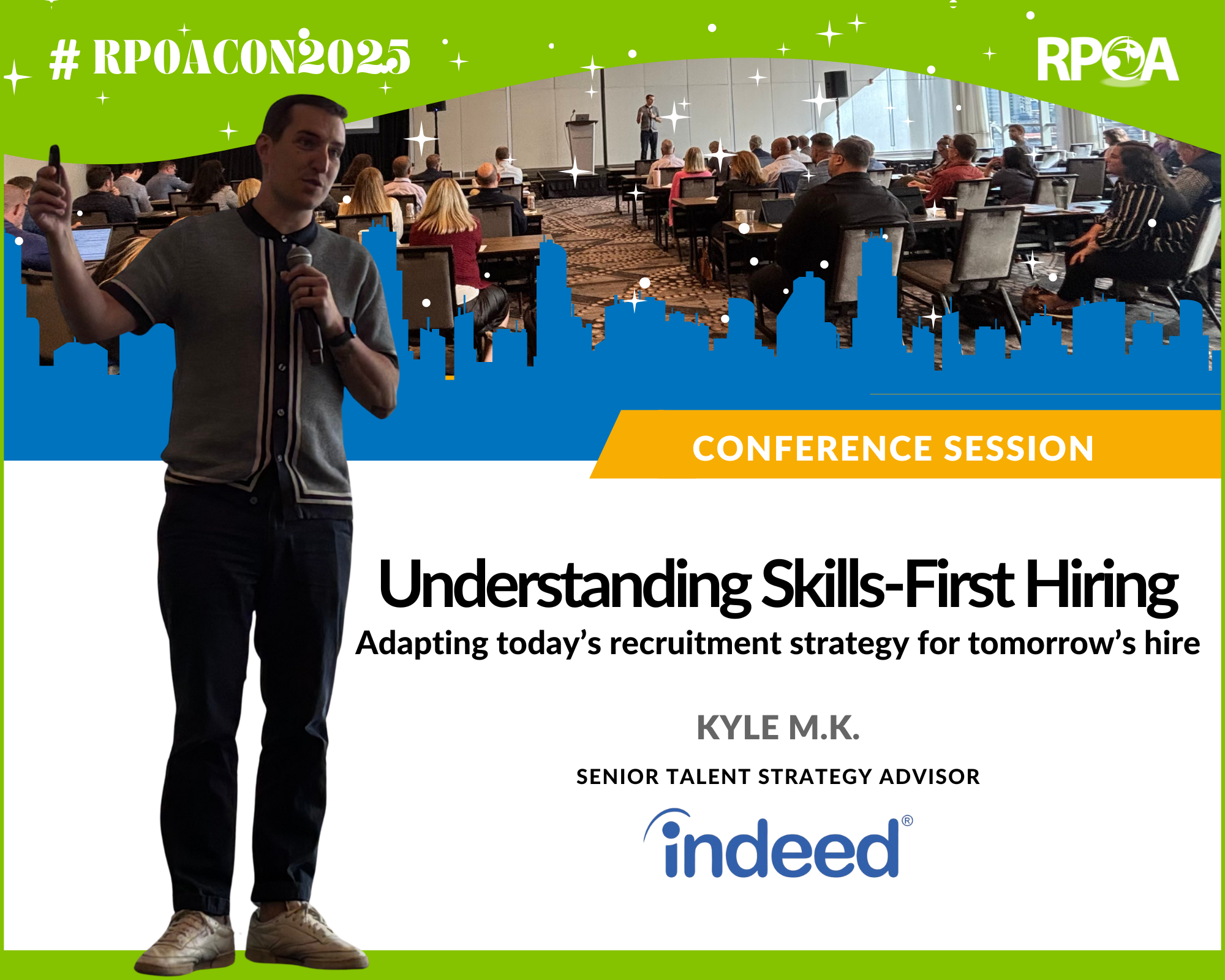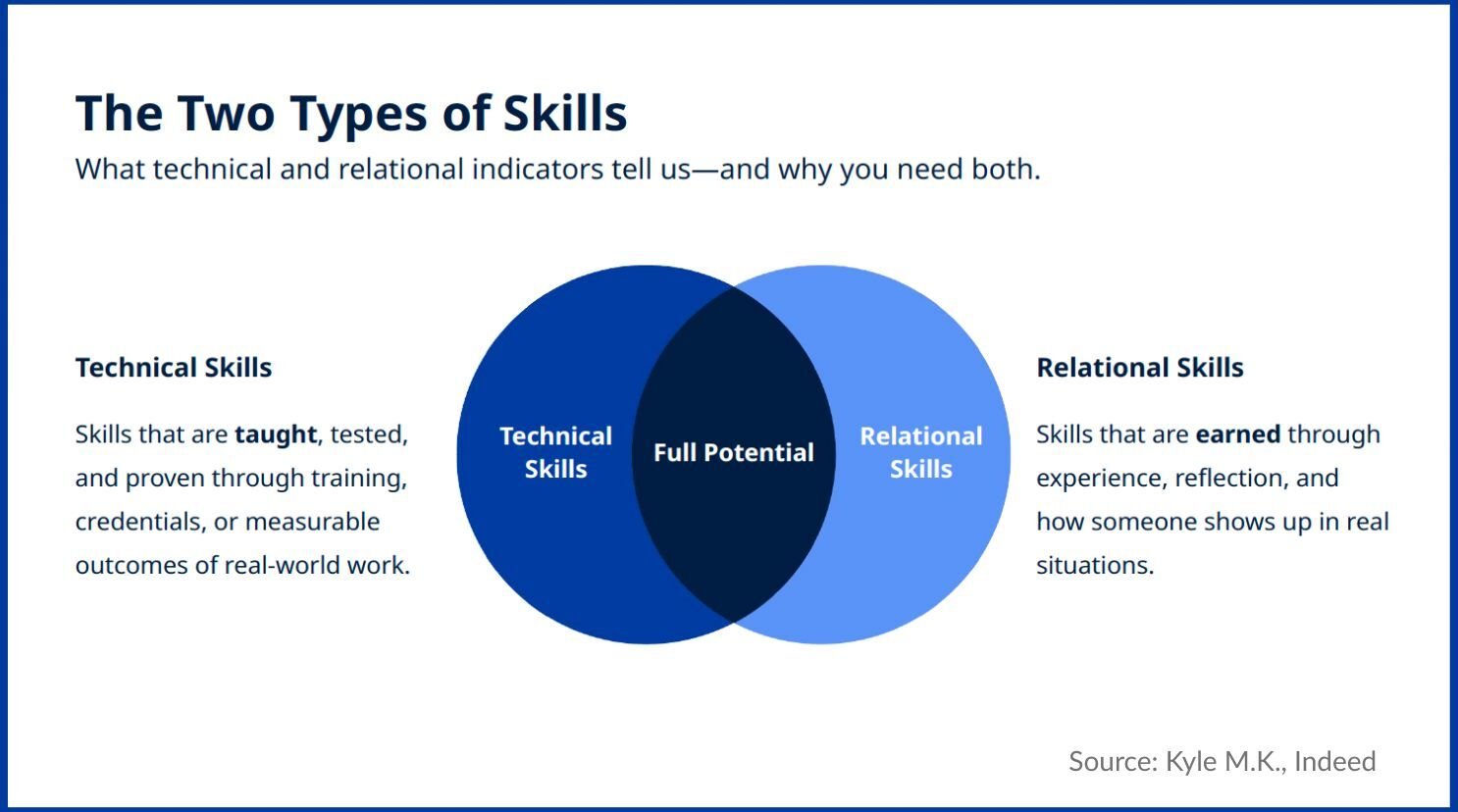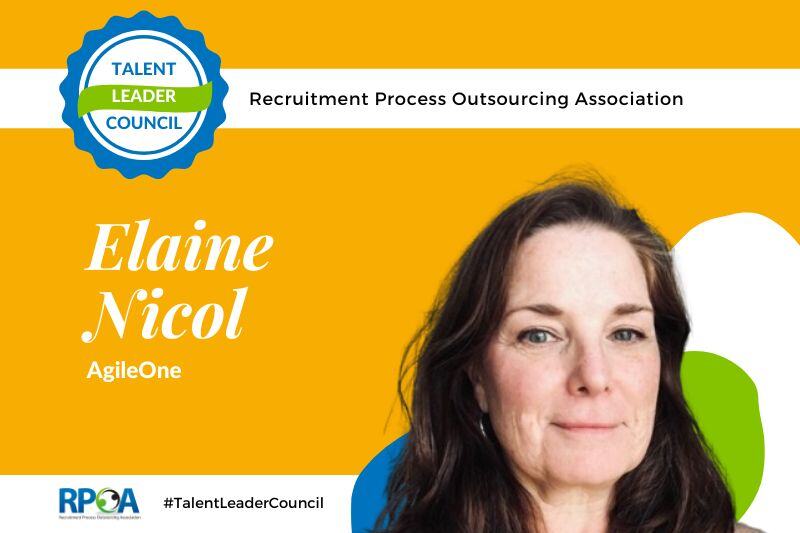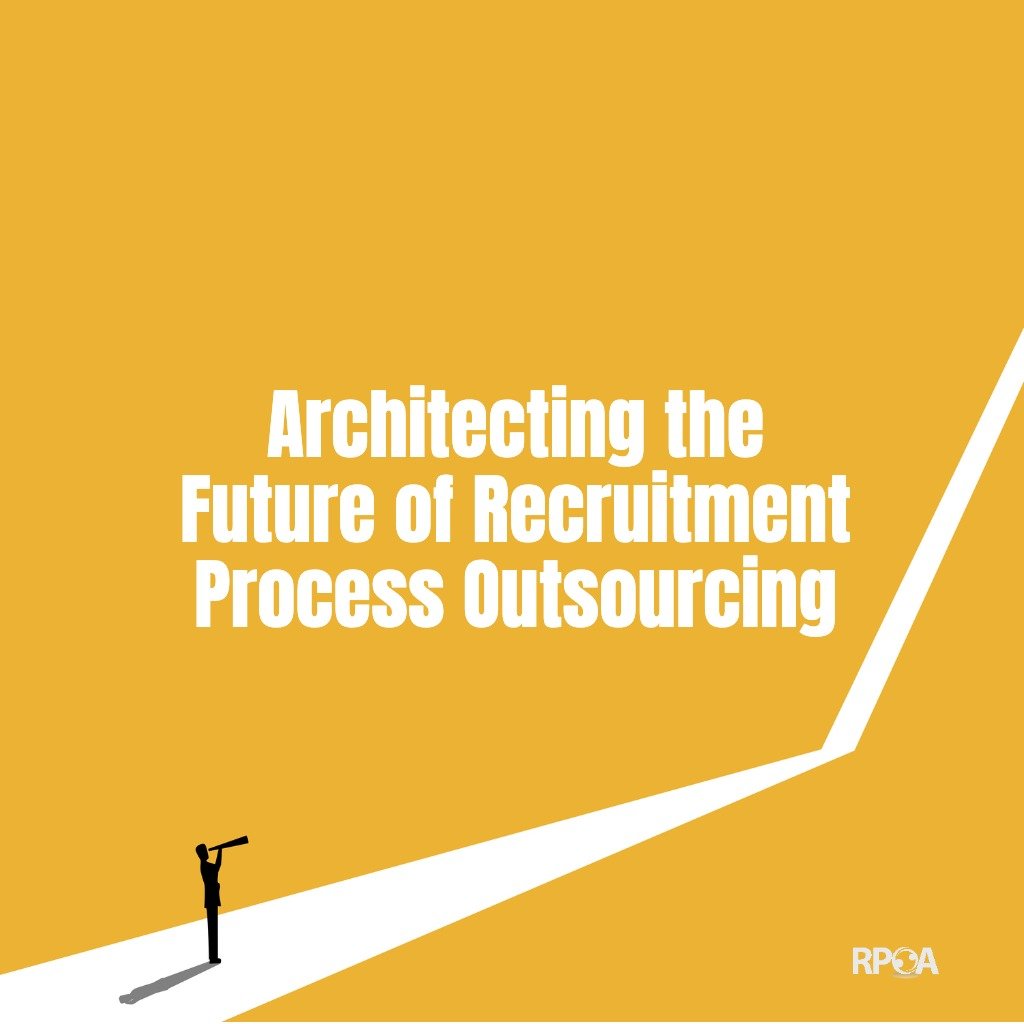
Traditional hiring practices that focus on college education and years of experience are broken. A survey by Indeed among tech employers (conducted between November 2024 and February 2025) found that 43 percent of employers say receiving unqualified candidates is their biggest hiring challenge, while 73 percent of job seekers report an increased difficulty in securing positions over the past three years. This bifurcation reveals fundamental flaws in hiring frameworks that prioritize education credentials and years of experience over demonstrable capabilities. Only organizations that transition to capability-based assessment frameworks can access talent pools necessary for competitive advantage.
Addressing this challenge requires a fundamental transformation in how employers identify and evaluate talent. At the 2025 Annual RPOA Conference, the leading industry conference for recruitment process outsourcing (RPO) leaders and their industry partners, Kyle M.K., introduced a skills-first hiring framework. Kyle, a bestselling author of The Economics of Emotion and Senior Talent Strategy Advisor at Indeed, examined how skills-first hiring transforms talent acquisition by screening for capabilities rather than proxies. This approach delivers measurable retention improvements and creates sustainable workforce development. This post explores Kyle's presentation on how capability-based frameworks address current hiring challenges while preparing organizations for rapid skill evolution.
Major takeaways for talent acquisition professionals and HR leaders:
- Predictive validity advantage: Skills screening delivers five times more predictive power than education requirements and 2.5 times more accuracy than experience proxies in identifying successful hires.
- Retention effect: Organizations that remove degree requirements and hire based on demonstrated skills experience approximately 20 percent higher retention rates across all positions.
- Market transformation: Eighty-one percent of job matches on Indeed's platform now occur through skills-based algorithms rather than traditional credential matching, signaling fundamental shift in talent marketplace mechanics.
Why Credential-Based Screening Excludes Qualified Candidates
Traditional credentials fail to predict job performance outcomes in modern talent markets. Kyle said requirements like ten years of experience in generative AI technology, which emerged commercially less than three years ago, demonstrate credential-based screening absurdity.
"Organizations that remove degree requirements and hire based on demonstrated skills experience approximately 20 percent higher retention rates while expanding access to underrepresented talent pools." Kyle M.K., Indeed
Kyle explained that platforms now match candidates with opportunities based on demonstrated skills rather than degree completion or tenure accumulation. The number one search term on Indeed remains blank—candidates leave the "what do you want to do" field empty, reflecting recognition that skills transfer across industries more fluidly than job titles suggest.
Five Components of Skills-First Hiring Framework
Skills-first hiring enables comprehensive talent lifecycle management through capability-based assessment. Kyle defined the framework as encompassing five key components:
- Talent attraction: Remove credential barriers and write skills-based job advertisements describing capabilities rather than degrees
- Hiring evaluation: Screen for demonstrated skills through scenario-based interviews and capability assessments
- Onboarding and learning: Identify developable competencies and create training pathways for skill advancement
- Retention strategies: Build career development frameworks based on capability growth rather than tenure milestones
- Internal mobility: Enable career movement across roles based on transferable skills
"Skills screening delivers five times more predictive power than education requirements and 2.5 times more accuracy than experience in predicting successful hires and long-term performance." Kyle M.K., Indeed
Kyle said he deliberately avoids "soft skills" terminology because it implies secondary importance. As artificial intelligence assumes more technical functions, relational capabilities become primary differentiators. Skills audits identify both technical and relational capabilities required for immediate success versus developable competencies, reducing the exclusion of qualified candidates by 35 percent.

Three Steps to Conduct Skills Audits for Job Positions
Skills audits identify critical capability requirements through three essential steps:
- Define specific technical and relational capabilities: Replace generic requirements like "good communication skills" with precise descriptors such as "communicates complex ideas in simple terms" or "maintains composure in stressful environments"
- Identify immediate versus developable competencies: Determine which capabilities candidates must possess on day one versus which the organization can develop through training
- Remove credential barriers to entry: Eliminate degree requirements that exclude qualified Skilled Through Alternative Routes (STARs) workers who gained capabilities through alternative pathways.
STAR: Skilled Through Alternative Route Skilled Through Alternative Routes, meaning they learned their job skills through work experience, military service, training programs, or community college instead of getting a four-year college degree. Many companies now hire STARs because they have valuable skills even without a traditional college education..
Degree requirements exclude qualified STARs workers who constitute approximately half the workforce. Kyle emphasized that these candidates entered the job market earlier than college-educated peers and followed nonlinear career trajectories. Removing degree barriers attracts STARs candidates and expands talent pools to include underrepresented groups from rural communities and minority backgrounds. Research shows hiring based on skills rather than degrees increases retention by approximately 20 percent.
Research shows hiring based on skills rather than degrees increases retention by approximately 20 percent.
How to Screen Candidates for Skills Instead of Education
Scenario-based interviews evaluate problem-solving capabilities more effectively than collecting experience narratives. Kyle said interview processes must assess how candidates think and solve problems in job-relevant situations.
Presenting candidates with realistic workplace scenarios assesses decision-making frameworks in context, increasing predictive validity by 40 percent. Kyle offered an example of an HVAC technician: the candidate arrives at a home with stressed parents and crying babies. How does the technician prioritize? The response reveals decision-making frameworks more effectively than asking about past experiences.
National Health Service Skills-First Implementation Results
NHS capability-based hiring produces 80 percent retention rates that substantially exceed industry norms. Kyle cited the National Health Service in the UK as demonstrating skills-first effectiveness at scale. Since adopting capability-based hiring in 2019, NHS hired approximately 4,000 individuals without prior healthcare experience. Over 3,200 remain employed.
Kyle said this success indicates that skills-first approaches create job satisfaction and organizational fit that traditional screening methods miss. Organizations that implement capability-based frameworks access larger talent pools, improve retention outcomes and develop more adaptable workforces.
Four Methods to Train Hiring Managers on Skills-First Approach
Hiring manager training enables capability-based evaluation that replaces traditional proxy screening. Kyle recommended four methods:
- Conduct skills audit workshops: Help hiring managers articulate actual capability requirements and identify gaps between stated credentials and performance predictors
- Demonstrate credential-performance disconnects: Show data proving traditional proxies no longer predict success in current labor markets
- Provide capability assessment tools: Equip managers with scenario-based interview frameworks and AI-powered evaluation platforms
- Improve job advertisement quality: Train managers to write clear, accessible postings describing capabilities rather than resembling legal documents
Skills audit workshops identify gaps between credential requirements and performance predictors, reducing purple-squirrel job descriptions by 45 percent. Kyle explained that this change management challenge represents the most significant implementation barrier.
Skills-First Hiring vs Experience-Based Hiring Effectiveness
Skills-based algorithms match 81 percent of candidates with opportunities based on demonstrated capabilities rather than credentials on Indeed's platform, reducing time-to-fill by 30 percent. Kyle said skills-first hiring addresses present recruitment challenges while preparing organizations for future demands.
Check out the RPOA calendar of events for the annual conference and more events from the RPOA.







-min-1-1.jpeg)






